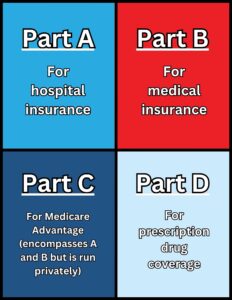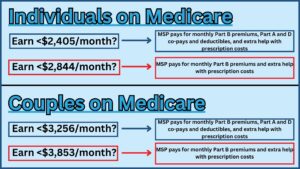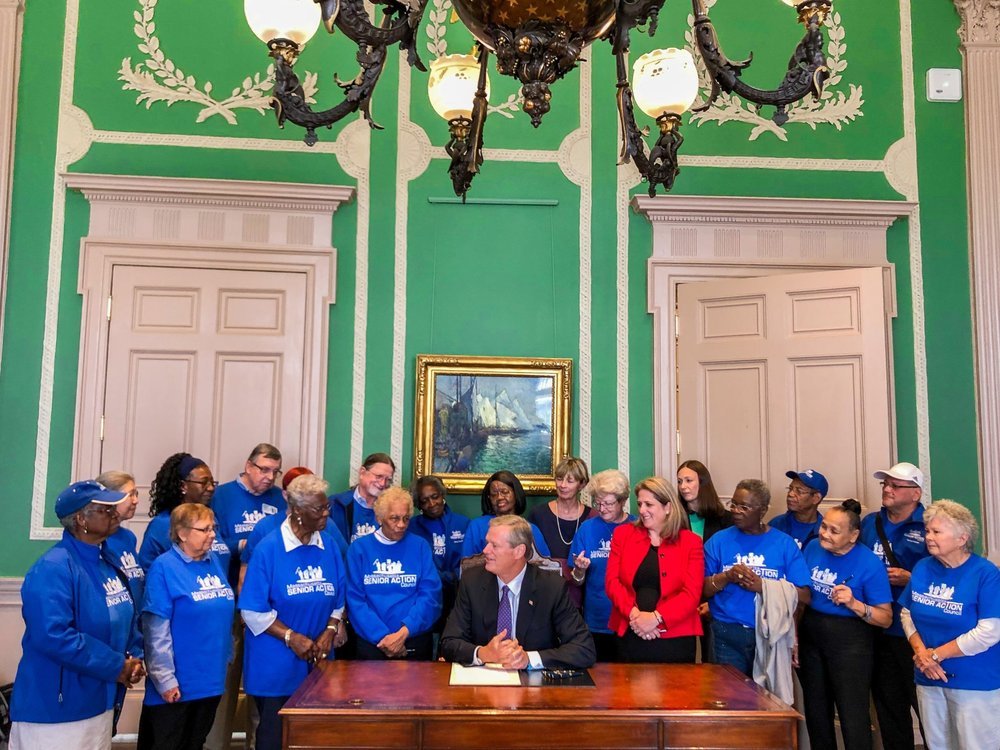Health Care For All (HCFA) takes pride in its commitment to health care equity, affordability and accessibility. For this reason, the organization wants to highlight a recent decision made by state officials to expand eligibility to the state’s Medicare Savings Program (MSP).
The Medicare Savings Program is a vital resource for many Massachusetts seniors, and as of March 1, 2024, more people than ever before will qualify due to a hard-won alteration to the program’s guidelines.
As a quick primer, Medicare is the federally funded health care program for people over 65 and people with disabilities. Medicare is divided into four parts:

Medicaid is a health care program for those that meet certain eligibility guidelines, including income, and is funded by both federal and state governments.
The Medicare Savings Program is a federal program managed by MassHealth, Massachusetts’ Medicaid agency. While you can qualify for both Medicare and MassHealth if you are over 65 and fall under the income limits, some seniors are left in a precarious middle ground. Medicare costs can be expensive, and if a person’s income level is considered too high to qualify for MassHealth, it can be challenging to afford health care (especially on a fixed income). Luckily, the Medicare Savings Program (MSP) is here to help!
If an individual on Medicare makes less than $2,405 per month in income – or a couple makes less than $3,256 – MSP pays for monthly Part B premiums, Part A and D co-pays and deductibles, and extra help with prescription costs. If an individual on Medicare makes less than $2,844 per month in income – or a couple makes less than $3,853 – MSP pays for monthly Part B premiums and extra help with prescription costs.

Until March 1, 2024, eligibility was also determined through an asset test: individuals could have no more than $18,180 in assets, and couples no more than $27,260. Countable assets included money in bank accounts and retirement accounts, which often excluded people with significant savings who would otherwise qualify based on income. After years of advocacy by folks across the Commonwealth (led by Mass. Senior Action Council and supported by Health Care For All), the asset test was removed when determining eligibility for MSP; this change goes into effect on March 1, 2024. Why does this matter?
Simply put, this change puts money that would have gone to health care costs in more seniors’ pockets; folks can save over $500 per month through MSP. HCFA believes that seniors should not have to choose between paying for food and housing or essential health care services. Seniors, regardless of income, are entitled to age with dignity and comfort. The elimination of the asset test also works to further health equity. By allowing folks to retain their assets to receive affordable health care, low-income seniors can build generational wealth for their families.
MSP and changes to its eligibility can feel wonky and impersonal when they’re anything but. A woman who was recently enrolled in MSP by Mass. Senior Action Council, a HCFA-funded CAC organization, shared that in 2023, she was able to buy her grandchild Christmas presents for the first time with the money she saved each month through MSP. HCFA is proud to have fought for a change that has such transformational power.
If you or someone you know would like more information about applying for MSP, please visit our enrollment event calendar to connect with an enrollment assister in your area.
Emma Boucher is a program associate at Health Care For All.



Love this! So thoughtfully written and really appreciated the use of infographics to simplify the complicated terminology!